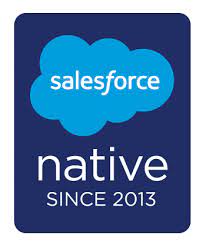What Does Salesforce-Native Mean?
SFDC-native refers to products that are built entirely within the Salesforce platform. These products do not require integration through the Salesforce API, as they are inherently part of Salesforce and designed specifically for its environment.
Aren’t Most Salesforce Products Built Native?
No, most products that claim to be SFDC-native are not fully native. Many are partially built within Salesforce or use Salesforce reports, but they still operate or were developed outside the Salesforce platform. This can be misleading since a product is only truly native if it is entirely built and operates within Salesforce.
How Can I Tell if a Product is 100% Native?
To determine if a product is 100% native, you can start by checking the Salesforce AppExchange. Additionally, you should ask your provider these questions:
- Is this product 100% native or partially native?
- Where is the product hosted?
- Where is the data stored?
If the product is hosted or its data is stored on an external server and not within Salesforce, then it is not a native product.
Why Should I Consider a 100% Native Product?
Enhanced Security
Since a native product doesn’t need to integrate with Salesforce, there’s no need to export data to external servers, which can be vulnerable. Everything remains within Salesforce, adhering to its already robust security settings.
Accuracy and Speed
A 100% native product ensures real-time data accuracy, eliminating concerns about syncing issues. You can always trust that the data you’re working with is current.
Trust
Products built within Salesforce follow Salesforce’s best practices and security policies. This ensures that you can trust these products as much as you trust Salesforce. Additionally, since they run on the same server as Salesforce, your product’s uptime is aligned with Salesforce’s uptime.
Simplified Tech Stack and Alignment
A native solution is easier to manage because it doesn’t require additional user log-ins or new skills to learn. When users log into Salesforce, they automatically access the native product’s features, reducing training needs and improving adoption rates. This also promotes better team alignment by providing a single source of truth, enhancing communication.
SFDC-native means that a product is built entirely within Salesforce, using its core technologies and development environment. Native products are written for the platform and don’t need to be integrated using the Salesforce API.
When an app is native to Salesforce, that means that an app is dedicated and committed to Salesforce. Non-native apps are more versatile in that they can typically integrate with a variety of different CRMs, but when you use a native Salesforce app, you work with a Salesforce expert.
What does platform native mean?
Native applications and platforms
However, in the context of mobile web apps, the term native app means any application written to work on a specific device platform. The two main mobile OS platforms are Apple’s iOS and Google’s Android. Developers write native apps in the code used for the device and its OS.
Non-SFDC Applications means a Web-based, mobile, offline or other software application functionality that is provided by You or a third party and interoperates with a Service, including, for example, an application that is developed by or for You, is listed on a Marketplace, is identified as Salesforce Labs or by a similar designation, or is an open source software product including e.g. the technologies commonly referred to as Non Profit Starter Pack (“NPSP”) and Higher Education Data Architecture (“HEDA”) and that are subject to the terms stated during the installation process and/or located on the landing page during their use.









